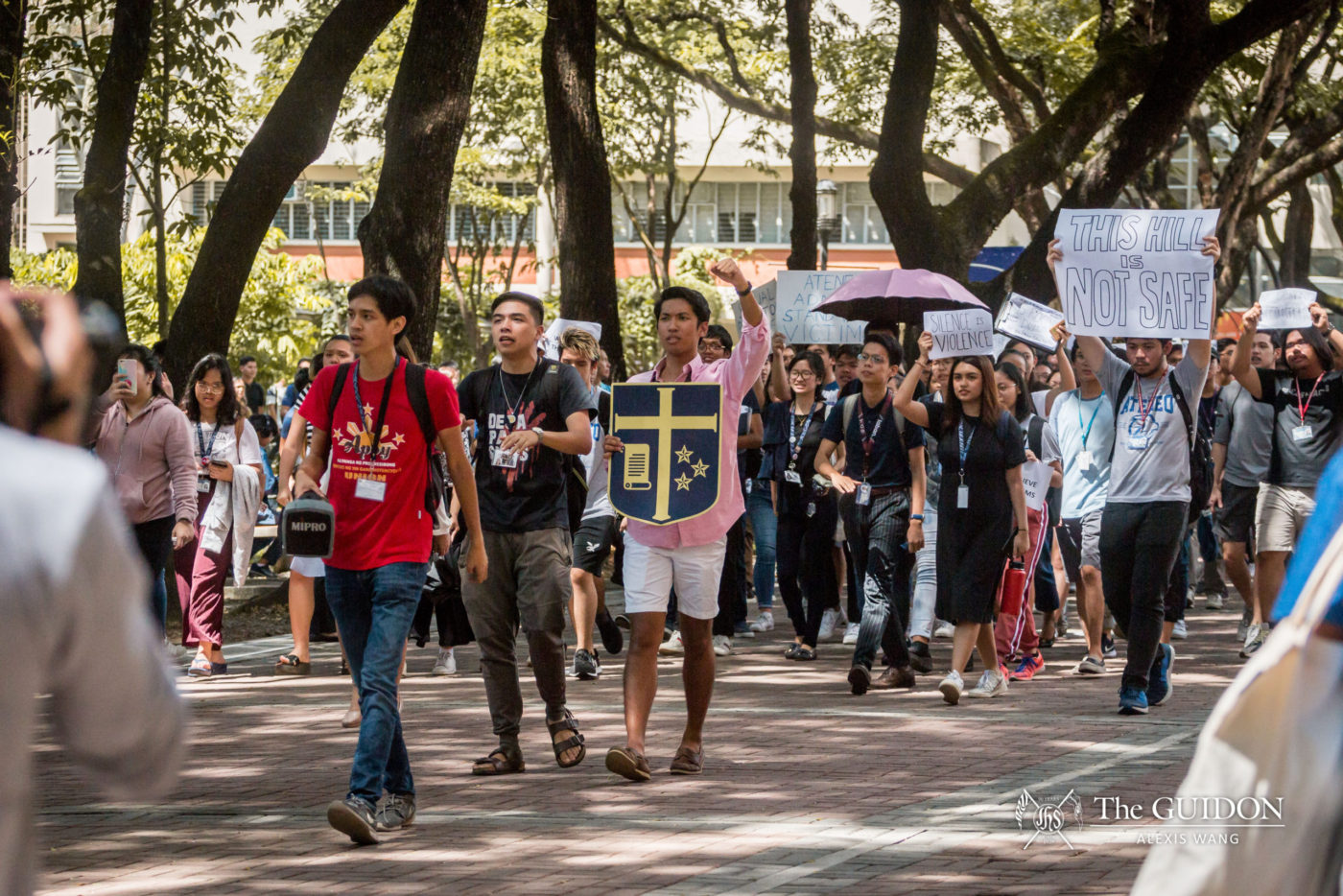IN AN effort to refine the University’s processes on sexual harassment, the administration released the Code of Decorum and Administrative Rules on Sexual Harassment, Other Forms of Sexual Misconduct, and Inappropriate Behavior (Code and Rules) on August 29. The Code and Rules supersedes the University’s Anti-Sexual Harassment Policy, which was based on the Anti-Sexual Harassment Act of 1995.
Under the Safe Spaces Act of 2019, the Code and Rules expands the definition of sexual harassment to include gender-based and peer-to-peer sexual harassment. It also includes other forms of sexual misconduct such as sexual assault, abuse, and exploitation, as well as voyeurism and inappropriate behavior.
After an on-campus protest in 2019, former University President Jose Ramon T. Villarin, SJ announced the creation of the Anti-Sexual Harassment Manual—an early draft of the Code and Rules.
It was meant to be reviewed earlier this year, but the COVID-19 pandemic delayed the drafting process. Following this, the Code and Rules took effect on September 26.
“Revolutionary” changes
Beyond expanding the definition of sexual harassment, the Code and Rules outlines imposable sanctions for infractions, grievance procedures, and modes of intervention and assistance. Section 11 states that disciplinary sanctions for students can range from written reprimands for minor infractions to dismissal for major infractions.
The Code and Rules covers formal and informal reports from anonymous and identified people. Section 29.3 defines an informal report as “a report to the Gender Hub, or any person-in-authority, which does not comply with the requirements of Sections 32 to 34 of [the] Code and Rules.”
“If the information from the informal report is verifiable […] through statements of persons who experienced sexual harassment and through witnesses, it may serve as a basis for a formal complaint,” Loyola Schools (LS) Legal Counsel Atty. Nina Patricia D. Sison-Arroyo added.
The Code and Rules also states that all University personnel and student applicants must disclose any pending or decided administrative, civil, or criminal complaints filed against them involving sexual misconduct, sexual harassment, inappropriate behavior, or analogous acts.
University personnel will also attend mandatory orientations and refresher programs on the Code and Rules, gender sensitivity, relevant laws and issuances on sexual misconduct, and other topics related to sexual harassment.
A more inclusive CODI
The Code and Rules created the University Decorum and Investigation System, which comprises the Committee on Decorum and Investigation (CODI), the University Office of Decorum and Investigation (UODI), the LS Gender Hub, and the University Gender and Development Office (UGDO).
CODI investigates formal complaints, while UODI gives investigative and administrative support to CODI. The UGDO implements the Code and Rules and ensures the University’s compliance with gender and development laws and issuances. It also facilitates an audit of the University Decorum and Investigation System once every three years.
As for the LS Gender Hub, Section 23 of the Code and Rules explains that the University President must expand their jurisdiction to serve all University units and ensure that each campus has a Gender Hub representative or satellite office. The LS Gender Hub provides sexual harassment survivors with counseling and assistance through their Safe Spaces, Care Services, Case Companion Services, and Protection Services—all of which will continue online.
Sison-Arroyo claimed that CODI membership is more transparent now that the Code and Rules sets the composition, qualifications, and selection process for CODI members. Sanggunian CODI Student Representative Kristelle Ventura said that past investigative bodies had no clear system, but the CODI now has members from differing backgrounds to ensure “neutrality.”
“Being able to include student representatives allows the CODI to reconcile or at least to harmonize the different perspectives present within a case, and I think that’s a revolutionary thing because you know that you are being seen,” Ventura said.
Superseding policies
Sison-Arroyo reiterated that the Code and Rules superseded the University’s Anti-Sexual Harassment Policy to cover the Safe Spaces Act.
Comparing criminal law to the Code and Rules, Urduja Women’s Desk Director Atty. Amparita Sta. Maria contrasted their definitions of rape. The Code and Rules defines rape as “non-consensual sexual intercourse,” and consent as an explicit “yes” that continues throughout a sexual encounter.
However, criminal law defines rape as “a man who shall have carnal knowledge of a woman” under specific circumstances such as the presence of force, intimidation, or threat. “A mere attempt to resist is not the resistance required and expected of a woman defending her virtue, honor, and chastity,” Sta. Maria said, citing the case of People v. Marquez in contrast to the Code and Rules.
Aside from categorically defining rape and consent, Sison-Arroyo claimed that the Code and Rules addresses the calls for transparency on administrative procedures. Both parties will now be given copies of all documents that one party submits to CODI, along with resolutions, decisions, and issuances of CODI to either party.
She added that the University President must release a semi-annual report on CODI cases. “This allows for a certain degree of transparency on the CODI cases within the parameters allowable under the Data Privacy Act,” she said.
Building trust
Ventura said that she hopes the LS community will be informed about the new processes so that they can speak without fearing “the power of the perpetrator.”
“Basically, [we should practice] a culture of [being welcome], a culture of tolerance for victims, like a certain bias for victims. A culture that equates speaking up with empowerment, not embarrassment,” she said.
She added that the administration can improve the system by ensuring a faster turnaround time of cases because survivors find it difficult to recount their experiences of abuse.
Meanwhile, Sison-Arroyo hopes that the Code and Rules can end sexual harassment within the LS.
“I hope that we would all have a renewed sensitivity and respect for each other, that no one will ever have to suffer any form of discrimination or abuse, and that the Code and Rules […] will help strengthen trust and confidence in the University’s resolve to end sexual harassment, other forms of sexual misconduct, and inappropriate behavior,” Sison-Arroyo added.







